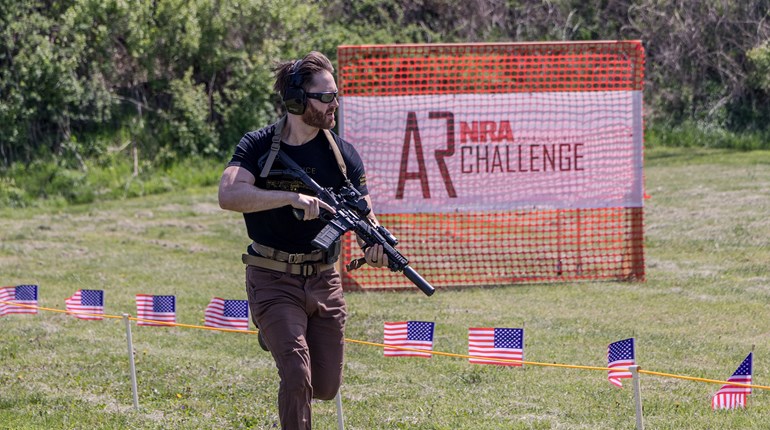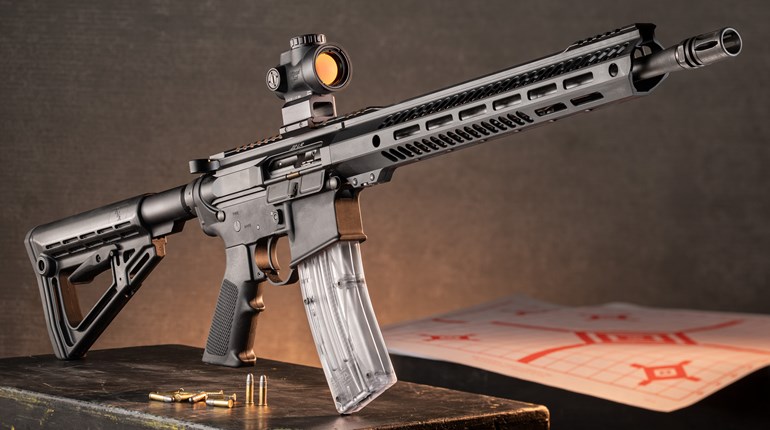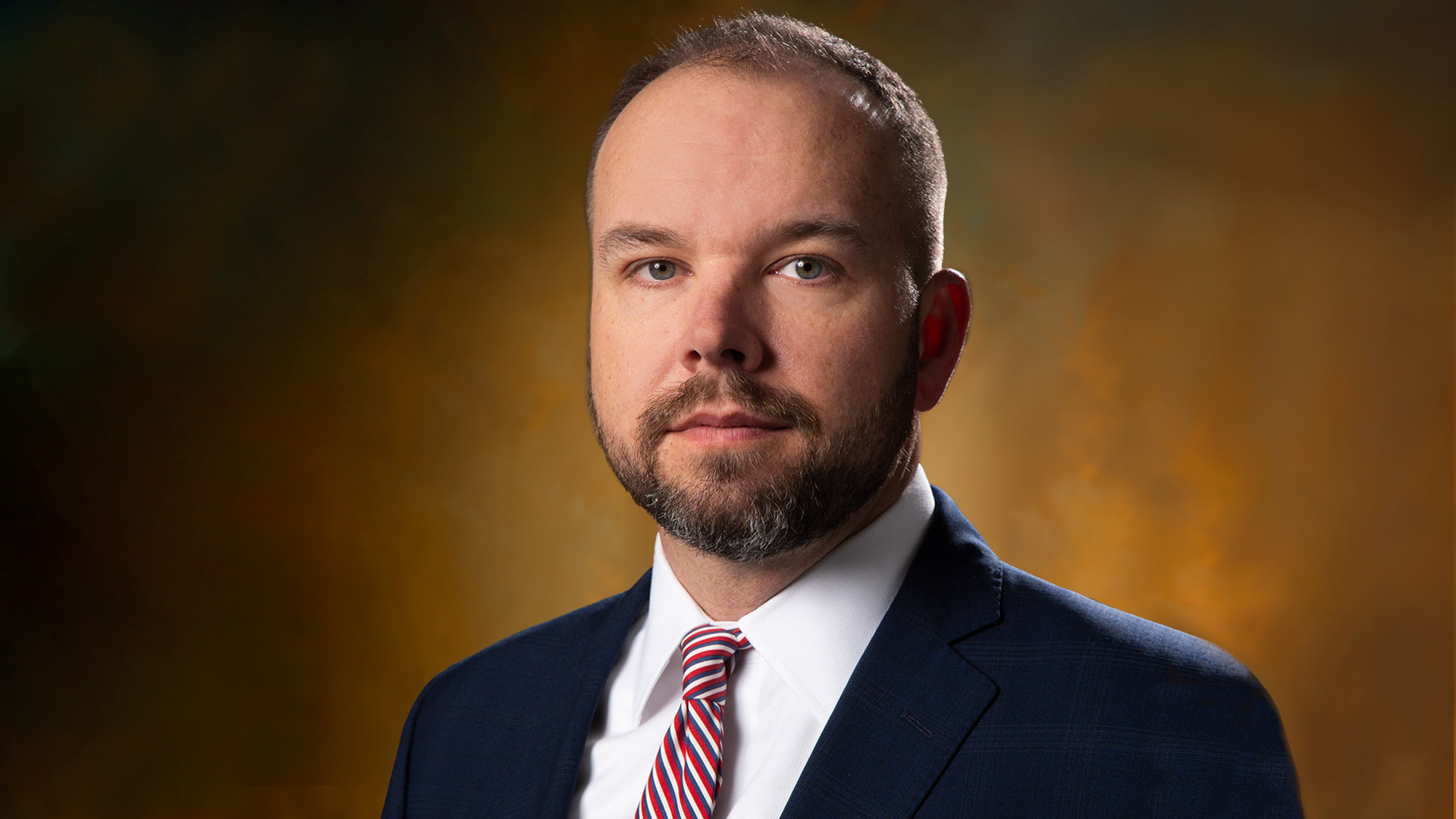
A failure of government to follow its own laws led to a massacre at a Texas church, leaving ordinary citizens to clean up the mess. Now, some insist that citizens must sacrifice some of their rights to atone for the sins of government.
This feature appears in the January ‘18 issue of NRA America’s 1st Freedom, one of the official journals of the National Rifle Association.
A fanatic, said Winston Churchill, “is one who won’t change his mind and won’t change the subject.” To this maxim we might add another characteristic: A fanatic is one for whom even evidence to the contrary is treated as ballast beneath his outlook.
There are many fanatics in America.
Take Nick Kristof, an opinion columnist at The New York Times for whom any bad news serves as an excuse to talk about gun control. In the wake of October’s truck attack in downtown New York City, Kristof tweeted, “Good thing that in NYC he couldn’t buy assault rifles, or the toll would be higher.” That the attacker had just demonstrated how to turn almost anything into a weapon seemed not to have occurred to him. Nor, for that matter, had the fact that a recent truck attack in France had killed more people than has any mass shooting in the history of the United States, or that the perpetrator wasn’t in fact from New York City. Like the divorcé at a dinner party who turns all talk to his ex-wife, all conversation leads inexorably to the same place.
What, one has to wonder, would fail to prompt such a response? If a gun being used in a terror attack helps the argument for gun control, and a gun not being used in a terrorist attack helps the argument for gun control, what chance is there for debate? It has long been observed that, irrespective of the specifics of the case, the gun control movement always trots out the same supposed “fixes.” In so doing, advocates of more restrictions have ensured that their rhetoric now sounds more totemic than practical; as if, deep down, they believe that a sacrifice must be made to the gods. A standard magazine was used? Time to ban the “high-capacity” models. A background check was passed? Time for “universal” background checks. A terrorist used a shotgun? The AR-15s have to go. Something, anything, must be done. Pick your panacea and run with it.
If a gun being used in a terror attack helps the argument for gun control, and a gun not being used in a terrorist attack helps the argument for gun control, what chance is there for debate?Rarely has this unmoored dogmatism been more obvious and more pathetic than after November’s church shooting in Sutherland Springs, Texas. The scale of the government screw-up that presaged the abomination can barely be comprehended. And yet still came the preordained pleas to the federal government. The perpetrator in that case was the recipient of a bad conduct discharge from the Air Force; he was a former mental patient who had at one point escaped the facility in which he was being treated; and he was a convict who had been jailed for violent assault. As a result, he should have been legally prohibited from owning a gun, and, one would think, should have been languishing in prison reflecting on what he had done. Disgracefully, neither punishment was obtained.
For that, the blame lies not with the Republican party, nor with “flyover country,” nor with the NRA, but with Uncle Sam. Under the clearly established terms of federal firearm law, the shooter’s name should have been available to the National Instant Criminal Background Check System (NICS). It wasn’t. Why not? Because the Air Force failed to do what was required.
Nor, incomprehensibly, was he incarcerated. The acts of “domestic violence” for which the killer was discharged were serious in the extreme. Per the retired Air Force prosecutor who was in charge of the court-martial, the perpetrator was not only guilty of having choked and beaten his wife and then assaulting his stepson “severely enough that he fractured his skull,” but he “pled to intentionally doing it.” For this heinous transgression he was given a year in prison, a paltry sentence that raises the question of what our prisons are there for, if not to keep such people away from the rest of us. There is not, I must assume, a single philosophy of criminal justice in which the violent assault of a woman and an infant child are held to be so negligible. Nor are there many people out there who, in the worthwhile name of criminal justice reform, would seek less consequential sentences for such abusers. What does it say about our priorities that a man who admitted to smashing in the head of a baby was given the same sentence we reserve for teenagers who operate boats without a license?
What does it say about our priorities that a man who admitted to smashing in the head of a baby was given the same sentence we reserve for teenagers who operate boats without a license?In a free society, it is difficult enough to determine who might be capable of such atrocious acts; too often, alas, the ostensibly quiet man turns out to be a villain. But if we are to ignore or to abandon those who are thrusting red flags into our eyes, that task becomes all but impossible. I cannot grasp the depravity that is required of one who would murder a child in a church. As is the case for most people, the idea of pointing a weapon at another person in anything but self-defense is an appalling one to me. Nevertheless, I cannot help but intuit that the sort of person who is capable of doing such a thing is also the sort of person who is capable of choking a woman and smashing her baby’s skull. As we were all reminded on the day of his atrocity, the shooter in Sutherland Springs was exactly that sort of person, and he had warned us of as much on a number of different occasions. In addition to assaulting his family, he was on the record as having escaped a mental health facility, and as having tried to sneak firearms onto a military base in order to carry out death threats leveled against his superiors. November’s attack did not come out of nowhere.
Such warnings are, of course, why we have a system of background checks in the first place. The Brady Act of 1993, which instituted the NICS system, was sold and passed atop one elementary presumption—that, as a society, we are able to determine a man’s future conduct from his past. Some agree with this; others do not. Yet more people debate how appropriate it is to place prior restraint upon an enumerated constitutional right. Either way, we can surely all acknowledge that there is no purpose whatsoever to such an impediment if it is to be ignored or desultorily maintained. If, as happened before Texas, the authorities refuse to play their part, we will be left with nothing more than a mechanism for harassing the law-abiding. After Sutherland Springs, the most appropriate response from the champions of ever-larger government would be modesty.
Alas, we saw no such thing. Instead, we saw Pavlov’s principle in all its unlovely fruition. We saw the monomaniacs emerge, unthinking, from their shells. We saw, in some of the nation’s most august pages, the call for further federal action—up to, and including, the confiscation of every firearm in the country. We heard talk of prohibiting “high-capacity” magazines, despite the fact that the shooter had 15 magazines and had been trained to reload at speed, and the fact that Stephen Willeford could have needed a full magazine to fight back against the killer. We heard talk of expanding background checks, despite the fact that the shooter had passed such obstacles repeatedly. We heard, from Sen. Dianne Feinstein, D-Calif., and others, the usual nonsense about the burning need to identify a handful of cosmetic devices and impose a federal ban on them. And from Kristof, at the Times, the usual restrictionist platitudes.
In normal circumstances, these would be peculiar responses. But given that the destruction in this case was brought to a halt by a private individual—a “good guy with a gun,” in the parlance of the smirkers—they are nothing short of extraordinary. The government failed, civil society stepped into the vacuum, and still the call was for Washington, D.C., to save us. In this case, civil society came in the form of Willeford, an NRA member and instructor who heard the abomination unfolding and, barefoot, ran out with his own AR-15 to confront the perpetrator. Having noticed that the shooter was wearing an armored vest, Willeford took aim at the Velcro-covered gaps in his protection and injured him, effectively ending the spree. In the understandable absence of police—Sutherland Springs is a rural town—Willeford was, in that moment, all that stood between the killer and the continuation of his rampage.
If everything is a case for gun control, then nothing is.In processing this, we have a number of options before us. In the name of prevention, we could give more power to a federal government that has proven incapable of properly or effectively using what it already has—and we could do so on the questionable grounds that this time, at least, it’ll be different. If we hoped for a more draconian endeavor, we could take the view that the root problem here is firearms, and we could propose that the same government that was unable to add flags into a database would be able to confiscate millions of guns without issue. Or, grasping well that snatches and dreams do not make sound policy, we could be thankful that there are men such as Willeford in America, and we could insist that the law make it as easy as possible for such people to protect us from the monsters.
It is at this point a cliché to observe that a huge number of Americans live a long way away from immediate government help, and thus they depend heavily upon their right to keep and bear arms. But that it is repeated so often does not make it untrue or inapposite. Go to rural Texas, to Appalachia or to Big Sky country and tell the locals that they are to be deprived the opportunity to defend themselves and must instead rely upon faraway flashing lights. You’ll hear the laughter as far away as Europe.
At least, you’ll hear laughter at first, and then you’ll see clear flickers of irritation, for the monomania of The New York Times’ editorial page is, in fact, not amusing at all. Of the many reasons that gun control pushes tend to fail badly in America, perhaps the most potent is the perception among voters that they, rather than the perpetrators of violence, are the ones being targeted. So it is here. A violent, disturbed and dishonorable young man did something that almost no human being can even begin to countenance, and he did so as the direct result of a string of failures for which the government was squarely to blame. That, in the immediate aftermath, the usual suspects moved to limit the options available to the man who took down the threat is, quite rightly, beyond the common understanding of even the most tolerant of ears.
Now, as ever, this attempt must be resisted. Americans are not talismans to be pushed around the board in a vain attempt to placate the devil, and their rights are not squares on some bureaucrat’s Rubik’s Cube. That the opponents of the Second Amendment lack imagination and discipline is regrettable. That they would translate their shortcomings into law is jeopardous. If everything is a case for gun control, then nothing is. No case for constraints was made in Texas.
Charles C.W. Cooke is the editor of National Review Online.

































